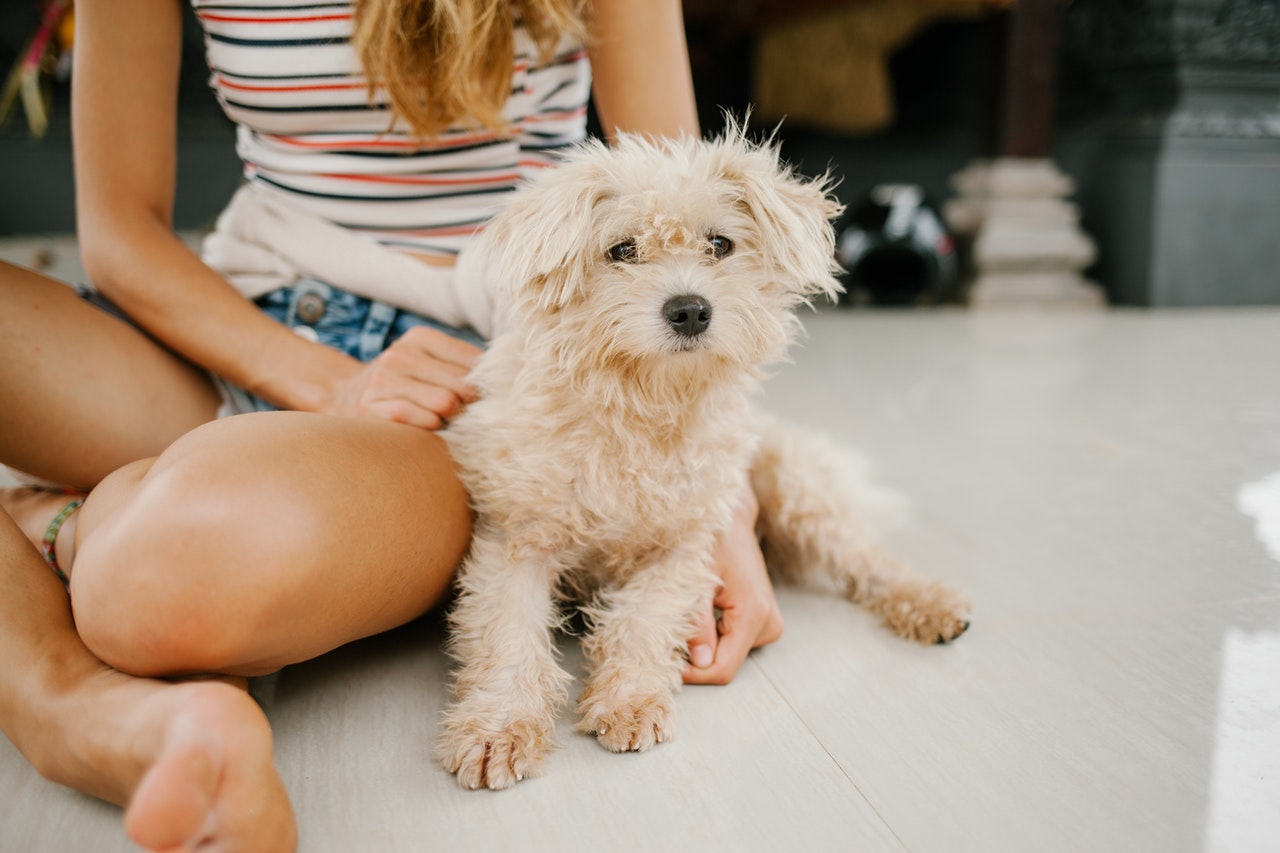If you’ve never owned a dog before, the prospect of becoming a first-time dog owner is an exciting one. That being said, choosing the right breed can be a daunting task when you’re not sure what to look for in a pooch. While it might be tempting to adopt the first precious pup you encounter, you could be in for an unpleasant surprise if you take home a high-energy breed with specialized grooming needs. If you want to avoid second-guessing your decision, we recommend opting for low-maintenance breeds that suit your lifestyle needs. We’ll walk you through how to choose the right dog, and we’ll share some of the best breeds for first-time owners.

The top 5 breeds for new dog owners
If you’ve been looking for the perfect pooch, you’re guaranteed to love one of these breeds.
Golden retriever
A member of the sporting group, golden retrievers are 21.5–24 inches tall and weigh 55–75 pounds. Their double coat ranges from pale, creamy yellow to a rich, reddish gold, and they have an average life expectancy of 10–12 years. Goldens are America’s third-most-popular dog, and it’s easy to see why. Their gentle natures make them the perfect dog if you have other pets or children.
Golden retrievers need daily walks to prevent boredom and maintain good health. If you love being outdoors, a golden retriever makes the ideal companion, but they’re equally at home sprawled out at your feet. You’ll need to keep your golden brushed to prevent tangles, but they have fairly minimal grooming needs. Best of all, their intelligence and eagerness to please make them easy to train.
Great Dane
While it might surprise you to see such a massive dog on the list, Great Danes are gentle giants. These pups, members of the working group, seem to have no concept of how large they are, and they tend to be couch potatoes. Measuring 28–32 inches and weighing a hefty 110–175 pounds, Great Danes have a life expectancy of roughly seven to 10 years.
Their short coats require minimal grooming, and their sweet, patient demeanor makes it an easy and enjoyable task. This calm-mannered breed is the perfect companion for homebodies — they’re happiest cuddling with their family! While every dog is different, the vast majority of Danes are extremely docile, which makes them an excellent breed for households with children and cats. (Fun fact: Despite the name, Great Danes are a German breed, not a Danish one.)

Cavalier King Charles Spaniel
Thanks to their large, round eyes, this toy breed retains a youthful appearance well into adulthood. Perfect for small homes and apartments, Cavaliers are petite, measuring 12–13 inches tall and weighing around 13–18 pounds. They have a life expectancy of 12–14 years.
Cavaliers have sweet dispositions, and they typically get along well with children and other pets. Clever and friendly, Cavaliers are relatively easy to train. You’ll need to brush them frequently to prevent their long, silky coat from becoming tangled. While they need some form of daily exercise, their small build means a short walk or indoor playtime is generally enough to keep them active and happy.
Papillon
Named for their butterfly-shaped ears, papillons are tiny members of the toy breed. They’re only 8–11 inches tall and weigh a dainty 5–10 pounds. They have a life expectancy of 14–16 years, ideal for anyone who wants to spend a long time with their pup.
Despite their long coats, papillons don’t require much grooming. They have a medium-high energy level, so they’ll be happy to run around with you in your backyard, but they’re also wonderful TV-watching companions. Papillons are friendly, easy to train, and good for all households as long as your kids are old enough to be gentle with this tiny pup.
Mixed breeds
While purebred dogs are lovely, mixed breeds should never be dismissed. Their diverse genetics often means they’re healthier than purebred dogs, and it’s also their diversity that makes them laid-back and friendly companions. Some dogs are great with children and cats, while others are better suited to living in a one-person household. Knowing what you don’t want is every bit as important as knowing what you do want, and the staff can help you find the best dog for your lifestyle.
Choosing the perfect dog for your lifestyle
While it’s easy to make a sweeping generalization and recommend laid-back lapdogs to everyone, that’s not necessarily the best fit for every household. The perfect breed for you will be different from someone else’s ideal companion. For example, if you live in a small home without access to a ton of outdoor space, you’ll probably want to stick with smaller breeds. However, if you’re outdoorsy and spend a great deal of time running or hiking, you’ll want to choose a breed that can accompany you on your adventures.

Finding the perfect match depends on your energy level, how much time you can spend on grooming and training, and whether you want to adopt a puppy or an adult. Puppies require more time and energy than adults, but they’re also blank slates. If you have cats, adopting a puppy allows you to train them to get along well with your feline friend, whereas adult dogs might have a harder time adjusting to sharing a home with another animal. Determined to adopt an adult? Check with your local animal rescue, as staff members have spent time getting to know each dog. They’ll be able to recommend a cat-friendly pooch.



